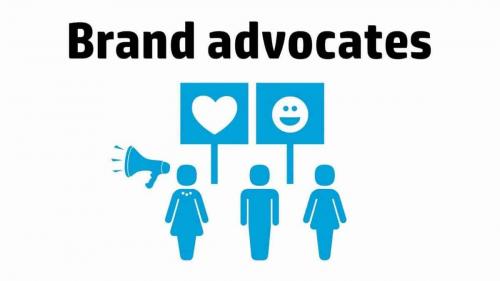What are the Proven Psychological Triggers which Generate Word of Mouth

Heard of emotional triggers?
Well, in psychological terms, trigger
is something that brings back a certain memory.
Triggers initiate an association of
thoughts which is why when someone says something like ‘vacation’ you start
thinking of the last time you had a long and good one. However, this was a layman’s example just to establish a point;
psychologists would tell you that triggers are more specific, and these
triggers can be anything – a sight, a sound, a word, a smell, or even a touch –
a trigger can be any form of stimuli.
Psychological triggers and word of mouth – Intricate details:
For brand advocacy
We have moved a step ahead from
television commercials and now live in the era of e-commerce and online
advertisement. The last couple of years have witnessed an exceeding success of
brand advocacy. Brand advocates are
genuine consumers of specific brands who recommend the products they use to the
people in their lives.
Brand advocacy can take place online.
Researches, however, have proven that only a mere 7% of brand advocacy takes
place online. The main advocacy takes place in real life scenarios, during
interpersonal communication – through word of mouth.
Can you ever possibly think of bread without also simultaneously thinking
about butter?
So bread becomes a trigger for
butter, and associating a particular brand of butter with bread in the
advertisement will work to its advantage. Here is why: assuming that bread is
something the target audience consumes pretty regularly for breakfast, there are
chances that seeing bread will bring back the memory of a brand of butter and
people will get talking about it. That’s how psychological
triggers generate word of mouth, which in the present times is the most trusted
form of advertisement.
Also, remembering any brand is associated
with a certain social cause might trigger a person’s memory. For instance, bamboo straws reduce the use of plastic; some brands contribute a
percentage of their profit towards the education of children. These factors
improve the chances for the brands of getting recommended during casual
conversations.
Words of mouth over commercials
Our generation is way too smart and
informed to be duped by tv commercials. When they see a superstar advertising
for a soap used mostly by the middle-class they know for certain, there is no truth behind their words.
And hence, there is no reason to trust their recommendation. On the other hand,
when people recommend products we know in
person – whether it be a colleague, a friend or even a stranger reviewing a
product on an e-commerce website – chances are we would trust them.
To get your consumers to endorse your brand, the best way is to associate your brand with keywords or images that remain at the top of their head and are likely to become a topic of conversation. Take ‘Monday Blues’ for example. Everyone whines about it once a week and a brand associated with the same has good chances of finding a place in conversations as such psychological triggers do a great job in generating words of mouth.
Post Your Ad Here
Comments